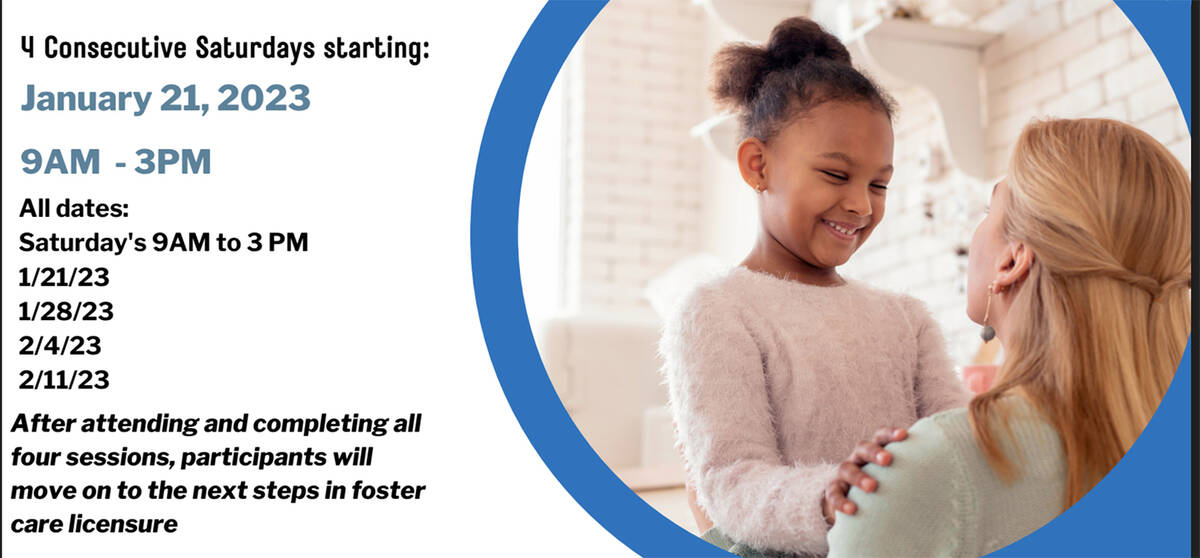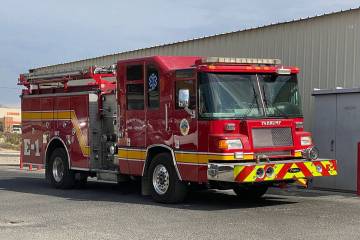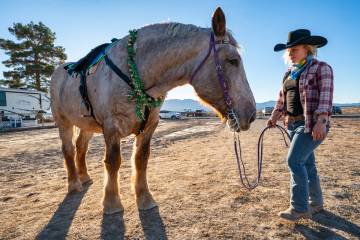Training will help Nye County add more foster parents
The decision to open one’s heart and home to foster youth is a big one but it is also one that can have a profound and lasting impact on the lives of vulnerable children.
Already suffering through a time of emotional upheaval, those in the foster care system need all the love and support they can get. Foster families are a crucial element when it comes to ensuring abused and neglected children receive the care they deserve but unfortunately, there simply are not enough foster homes available in rural Nevada.
In an effort to recruit more foster care providers, the Nevada Division of Child and Family Services, or DCFS, is hosting an online pre-service foster care training program geared toward readying potential foster families for the challenges — and rewards — that come with fostering.
The training will take place online through Microsoft Teams on four consecutive Saturdays, beginning this Saturday, Jan. 21 and will cover a wide range of topics. Included will be the typical life cycle of a foster care case, foster parent roles and keys to success, helping children with special needs or those who have experienced trauma, working with birth families and the foster care licensing process itself.
“You will also hear from judges, social workers, birth parents, current foster parents, former foster children and more,” information from DCFS added.
DCFS Foster Care Recruiter Shelby Rylie explained that the use of an online format for training purposes was born out of the COVID-19 pandemic, which she noted had forced the agency to “think outside of the box.”
“I don’t think anyone had considered the online method before the pandemic but it’s worked out really well for us,” Rylie remarked. “It’s helped us get care providers from everywhere in the state together at one time, making it much more efficient.”
Throughout rural Nevada, which includes all areas with the exception of Las Vegas and Reno, there are regularly around 400 children in foster care but finding homes for them is a constant challenge.
For the Pahrump Valley, Rylie said there are currently nine active foster homes but they are nearly filled to capacity. Amargosa has just a single foster care provider and the towns of Beatty and Tonopah do not have any fosters at all. This means that when a child must be removed from their home in these communities, there is a high likelihood that they will need to be placed in a foster home outside of their hometown.
“I think it’s really important to point out for Pahrump in particular, we are not allowed to utilize homes in Las Vegas. So when there are no foster homes in a given child’s community, we have to consider looking outside of their place of origin,” Rylie said. “This is detrimental to children coming into foster care because just the act of being placed into foster care is perceived as a traumatic experience itself. Sometimes that is the most traumatic thing to a child and that really goes to, whatever is going on in their home, that’s their normal and if they have been raised in that, they may not even completely understand that it’s abuse or neglect.”
Rylie said behavioral issues can be a struggle for foster youth but maintaining some form of stability for the child can make a difference. Keeping a child in their own school, with their usual teachers and friends, allowing them to continue with clubs and other extracurricular activities, is always the best option.
“It’s really important that if a child does need to be removed from their home that we are doing our best to keep them with someone in their world, whether that is a grandparent, aunt or uncle, neighbor, teacher, anyone that is in that child’s zone of familiarity,” she said.
“It is also easier for their parents to be able to visit their children as well, to begin that healing process, rather than continuing to punish everyone and continuing to traumatize everyone through a system that is truly designed to heal families,” Rylie added. “Reunification sometimes isn’t possible but we always start out with that being the goal.
“And the role of a foster parent is not only to support the child and be an advocate for them but to be an advocate for their entire family,” she continued. “You may be the first example of a healthy family system that child’s parents have ever seen, you may be the reason they start to gain trust in the system, that they start to take a good look in the mirror and decide what needs to change in their environment for their child to get back home. You really get to work as a team with that family and many of our fosters go on to have strong relationships with their former fosters and those families for the rest of their lives.”
The training is scheduled for Jan. 21 and 28, as well as Feb. 4 and 11. All sessions run from 9 a.m. to 3 p.m.
To register contact Kevin Quint at Kevin.Quint@dcfs.nv.gov or call 775-684-1973 no later than end of business day on Thursday, Jan. 19.
Contact reporter Robin Hebrock at rhebrock@pvtimes.com

















